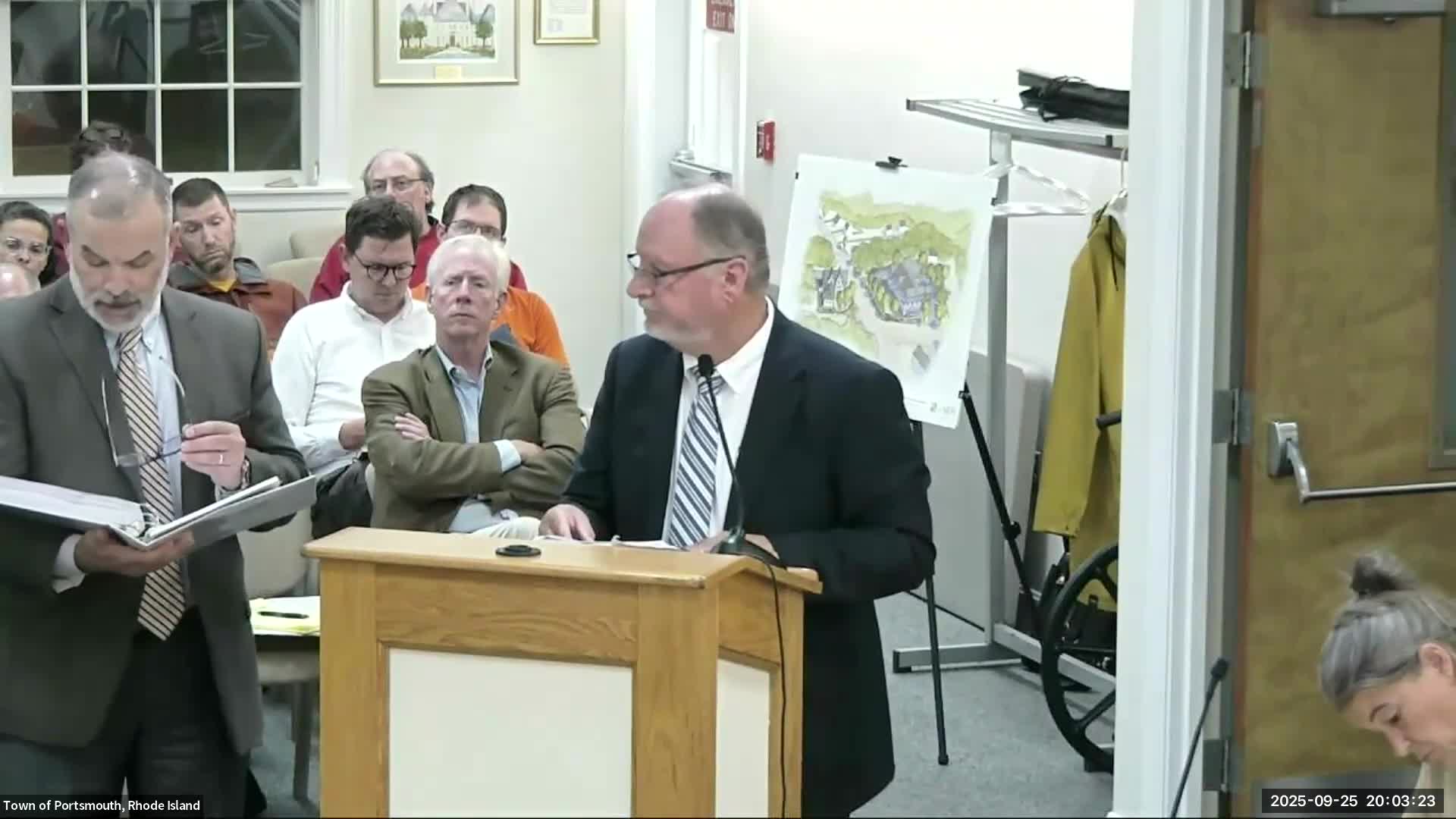Developers Propose 40-Unit Affordable Housing Project Meeting ITE Parking Standards
September 29, 2025 | Portsmouth, Newport County, Rhode Island
This article was created by AI summarizing key points discussed. AI makes mistakes, so for full details and context, please refer to the video of the full meeting. Please report any errors so we can fix them. Report an error »

In a recent Planning Board Special Meeting held on September 25, 2025, in Portsmouth, Rhode Island, discussions centered around parking provisions for a new residential development. The meeting highlighted the importance of adequate parking in response to community concerns about housing and transportation.
During the session, a representative presented a detailed analysis of the parking provided on-site, referencing the Institute of Transportation Engineers (ITE) trip generation and parking generation manuals. These manuals are widely recognized for their extensive studies on various land uses. The analysis indicated that the proposed development would offer 1.67 parking spaces per unit, exceeding the ITE's maximum recommended rate of 1.31 spaces. This figure aligns with findings from similar large-scale apartment complexes, which typically require between 1.51 and 1.75 spaces per unit.
Board members raised questions regarding how parking allocations would be managed for future residents. One member inquired about the specifics of parking assignments based on unit types, such as whether one-bedroom units would receive one parking spot and larger units would receive two. The representative acknowledged that while the exact allocation process had not been finalized, the overall parking provision was deemed sufficient. It was suggested that the condominium homeowners' association would establish rules regarding parking requirements for residents.
The discussions underscored the significance of parking in urban planning, particularly as Portsmouth continues to develop its housing infrastructure. Ensuring that adequate parking is available not only addresses immediate logistical concerns but also plays a crucial role in the long-term sustainability of the community. As the project moves forward, the Planning Board will need to monitor parking usage and potentially adjust regulations to meet the needs of residents effectively.
In conclusion, the meeting emphasized the critical nature of parking analysis in residential developments, reflecting broader trends in urban planning where housing and transportation must be carefully balanced to foster community growth and accessibility. The Planning Board's ongoing evaluations will be essential in shaping Portsmouth's future residential landscape.
During the session, a representative presented a detailed analysis of the parking provided on-site, referencing the Institute of Transportation Engineers (ITE) trip generation and parking generation manuals. These manuals are widely recognized for their extensive studies on various land uses. The analysis indicated that the proposed development would offer 1.67 parking spaces per unit, exceeding the ITE's maximum recommended rate of 1.31 spaces. This figure aligns with findings from similar large-scale apartment complexes, which typically require between 1.51 and 1.75 spaces per unit.
Board members raised questions regarding how parking allocations would be managed for future residents. One member inquired about the specifics of parking assignments based on unit types, such as whether one-bedroom units would receive one parking spot and larger units would receive two. The representative acknowledged that while the exact allocation process had not been finalized, the overall parking provision was deemed sufficient. It was suggested that the condominium homeowners' association would establish rules regarding parking requirements for residents.
The discussions underscored the significance of parking in urban planning, particularly as Portsmouth continues to develop its housing infrastructure. Ensuring that adequate parking is available not only addresses immediate logistical concerns but also plays a crucial role in the long-term sustainability of the community. As the project moves forward, the Planning Board will need to monitor parking usage and potentially adjust regulations to meet the needs of residents effectively.
In conclusion, the meeting emphasized the critical nature of parking analysis in residential developments, reflecting broader trends in urban planning where housing and transportation must be carefully balanced to foster community growth and accessibility. The Planning Board's ongoing evaluations will be essential in shaping Portsmouth's future residential landscape.
View full meeting
This article is based on a recent meeting—watch the full video and explore the complete transcript for deeper insights into the discussion.
View full meeting